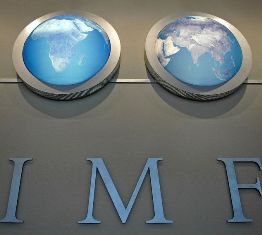IMF notes progress but tells Cayman more to do
 (CNS): Following the global watchdog’s visit to the Cayman Islands in March of this year, the International Monetary Fund has said in its latest update on the country report that the Cayman Islands Government still has work to do. Acknowledging substantial progress in the implementation of the 2003 OFC assessment recommendations, the IMF said there was still scope for enhancing regulatory reporting and disclosure requirements by financial entities and that CIMA should focus its supervisory efforts directly on the key risks facing the jurisdiction.
(CNS): Following the global watchdog’s visit to the Cayman Islands in March of this year, the International Monetary Fund has said in its latest update on the country report that the Cayman Islands Government still has work to do. Acknowledging substantial progress in the implementation of the 2003 OFC assessment recommendations, the IMF said there was still scope for enhancing regulatory reporting and disclosure requirements by financial entities and that CIMA should focus its supervisory efforts directly on the key risks facing the jurisdiction.
The latest review by the IMF was to assess developments in the supervisory and regulatory framework since the first Offshore Financial Sector assessment mission in October 2003, and on subsequent consultations with the authorities. In the report on the assessment, the IMF said that it took place in the context of an ongoing global financial crisis, the aftermath of which could pose challenges to the Cayman Islands.
The global watchdog found that the implementation of financial regulation and supervision in the Cayman Islands was broadly in line with international standards. Its main recommendation included increasing the independence and resources of CIMA, formalizing appropriate supervision and discipline, enhancing transparency, modernizing the Mutual Funds Law, and the introduction of appropriate solvency requirements for insurers.
“CIMA has made considerable progress toward implementing cross-sectoral recommendations as well as in the banking and the investment funds and securities areas, but some actions remain to be taken in the insurance area,” the IMF said. Noting theimportant changes that have been made to legislation, rules, statements of guidance and regulations with a view to meeting international standards, the IMF said there was still some room for strengthening.
It also noted that CIMA has adopted a risk-based approach to supervision, and as a result it needed to broaden the approach by conducting a full risk assessment. “CIMA’s implementation of a methodology to rate individual financial institutions has not been placed in the context of an overall risk assessment that takes account of the unique features the financial system in the Cayman Islands.”
It said that such an assessment should anchor CIMA’s implementation of risk-based supervision, namely to focus its supervisory regime more directly on the key risks facing the jurisdiction.
The report also commented on CIMA’s reliance on the work of overseas supervisors, highly skilled financial service providers such as external auditors, lawyers, insurance managers, and other professionals. “This reliance-based approach may be appropriate provided there is a full understanding of the relevant home and host regulatory systems and all parties have a common understanding of their responsibilities. To this effect, CIMA needs to draw up specific agreements with each home supervisor that make clear which risks are addressed by which supervisor according to whose rules, with the understanding that bilateral agreements do not provide full-proof mitigation of risks to the Cayman Islands,” the authors said.
The IMF report also recommended that CIMA’s powers should be consistent across the various statutes it administers, and to provide a more credible deterrent the IMF recommended increasing the monetary penalties that CIMA has the authority to apply.
The IMF said its recommendations were not time sensitive and broadly consistent with the priorities already identified by the authorities and in most cases where policy action is already underway. It did, however, suggest strengthening the legislative structure for the independence of CIMA, beginning with passage of the pending draft amendments to MAL, to draw up contingency plans to handle the failure of important institutions, a review of the human resource budget to ensure the continued adequacy and quality of regulatory resources and to monitor international developments to incorporate international best practice as it evolves. The IMF also noted that CIMA needed to implement a risk-based solvency regime for the insurance industry.
Category: Business


They have the picture of the glob above their initials to embellish all the countries they frigged up.